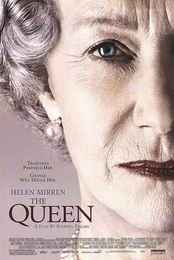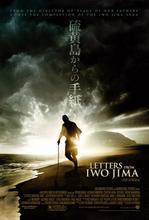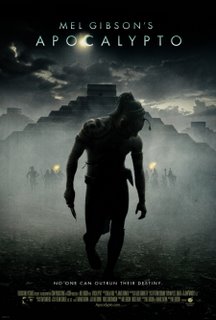Wednesday, January 31, 2007
The Queen
 This is one of those rare movies that is both entertaining and informative. It gives a rare glimpse into an exclusive world, namely the British Royal household.
This is one of those rare movies that is both entertaining and informative. It gives a rare glimpse into an exclusive world, namely the British Royal household.The movie recounts the events immediately following the death of Princess Diana as the Royal family and British politicians try to come to grips with the public relations fall-out.
The story could have easily fallen into one of two traps. It could have been a fawning love-letter to Princess Di. Or it could have been a sychophantic tribute to the Royal family. It was neither.
Without going into detail, the film conveys that the Princess Di story was not as simple as her post-mortem cult would have us believe. It is implied that the behind-the-scenes Di was hell on wheels and a persistent trouble-maker. From the little I know of this drama, I find this credible.
The Royals, and particularly the Queen, are shown from both sides of their human nature. On the one hand, the film shows us how hilariously insular and culturally inbred they are. In one particularly funny scene, Prince Philip proposes cheering up the young princes by taking them out hunting the day after their mother's death. "All right," says the Queen. "But no guns - it's Sunday."
On the other hand, the Queen is depicted as a woman who has dedicated her whole life to the British nation and has done so without a word of complaint or a whiff of scandal. At one point, she reminds her staff how she had served as a mechanic during the war. One starts to suspect the Queen resented Diana because she felt the latter had unjustly absconded with the title "the people's princess".
To me, perhaps the most enjoyable parts of the movie were the ones that showed that Elizabeth II is not just the Queen of England but also the archetypical English woman of her generation: frumpy, stubborn, witchy yet full of wry humour. When you see her stomping about in her head-scarf, raincoat and rubber boots, she seems like she could be anyone's grumpy old English grandma.
The movie is, above all, a character study. Helen Mirren does a phenomenal job of capturing this complex personality. If she doesn't win the Oscar for this performance, it will be a travesty.
Honourable mention also goes to Michael Sheen for his performance as Tony Blair. His acting is so convincing that you really find yourself thinking that he actually is Tony Blair, as we watch him go through his evolution from being a socialist who sneers at the monarchy to a seasoned politician who admires Elizabeth II. "Like every other Labour Prime Minister, you all end up ga-ga over the Queen", his wife complains.
A solid movie, worth seeing and well deserving its Oscar nominations.
posted by Mentok @ 6:52 PM,
,
![]()
Letters from Iwo Jima

We're into Oscar season, so I'm trying to cram in a few more movies. Consequently the reviews will be more frequent but shorter.
I was disappointed with this film. It is a good movie by all standards - well written, well acted, good production values.
But it was too soon after Flags of Our Fathers. My reaction was "Oh, another war movie. Oh boy."
War is hell. No matter what side of the battle you are on, war seems senseless when you are in the midst of it. That's the whole message of this movie. Not exactly original. This movie has nothing more to say on the subject that hasn't been said a million times in a million other war movies. The only difference is that they say it in Japanese.
Definitely worth seeing, but I wasn't blown away.
posted by Mentok @ 6:43 PM,
,
![]()
Thursday, January 11, 2007
Apocalypto

Let me start with the good things about this movie, of which there are many.
This is a great film. I was blown away.
Movies like this are the reason the cinematic form was invented. Watching this movie did not feel like watching a movie; it felt like virtual reality or like peering through a time portal.
So lavish were the production values, so thoroughly-researched and authentic were all the details that I really felt like I was seeing real people from another time.
A major part of this achievement was Gibson's much criticized technique of filming period movies in their original languages with subtitles. Not only does this enhance the feeling of authenticity of the film, it also enhances the acting. Since the actors don't have to worry about sounding real - since no one can tell what they are saying anyway - they can instead focus all their energy on acting real.
In case you haven't heard the buzz, this film is basically about a clash of cultures in pre-European South America. A primitive tribe is ravaged by the greed of a "civilized" culture. This conflict ultimately boils down to a life-and-death race through the jungle between two men, a tribal prince (named Jaguar Paw) and an imperial general, who come to represent all the strengths and weaknesses their respective cultures.
This film, I feel, performs a great service to the human race by meticulously documenting what we know about mesoamerican civilization. Of all the major ancient civilizations, that is the one most people know the least about. The fact an entire continent full of advanced civilizations was wiped out due to greed and ideology was truly a crime against humanity. It is fitting that this culture at last receive such a lavish tribute.
I think what impressed me most about this movie was its wise and nuanced depiction of the human animal. Like all truly great art, this movie sees humans for what they are: a group of apes who became too smart and too greedy too fast. The movie shows the human capacities for love, skill and creativity. It also stares unblinkingly into the profoundly ugly face of human greed, cruelty and sheer madness.
In one series of scenes, a group makes its way from the jungle towards the city. The road to the city depicts the gradual evolution of technology and society. The closer they get to the city, the more technology people use, the more clothes they wear, the more art they create. But, most importantly, the closer they get to the city, the more insane, corrupt and decadent people behave.
To be sure, this movie is not for the squeamish. There is a lot of gory violence. Still, this is a masterful, important film and everyone should make an effort to see it.
OK, there's all the good stuff. Now for the criticisms. This movie is not subtle. It hits you over the head with its message pretty heavily. Near the start of the movie, I was impressed by the irony of the fact that mesoamerican civilization oppressed and exploited other less advanced cultures. But the movie isn't content to let the viewers figure that irony out on their own. Towards the end of the film, Gibson beats us over the head with it. And just for good measure, there is a scene where a tribal elder tells an ancient fable, which of course delivers the moral of the film in the simplest possible terms, just so there is no chance that anyone in the audience will miss it.
This film also gives new meaning to the theatrical term deus ex machina. Jaguar Paw is repeatedly rescued from certain doom by the most outlandish miraculous events. Combined with the fact that this is basically a chase movie, these improbable rescues made me think I was watching some sort of mesoamerican version of the Roadrunner cartoon. There was one point in the movie where I completed expected to see the Acme logo.
Please, dear readers, keep in mind that this is a serious and thoughtful film. When you see this movie and you see the scene I'm talking about, please do not laugh out loud. And , once the chase scenes start, please please do not allow the Roadrunner music (dat dada dat dada dada) to creep into your brain. It would be such a shame if that happened. ;-)
Ultimately, these criticisms are pretty picky and technical. The long and the short is that this is an important film. While Gibson may be a loon and a bigot in real life, he is proving himself to be a great cinematic craftsman. It is, I suppose, ironic that greatness and ugliness should be so evident in Gibson's life, since this film helps show us that these are the common qualities of the whole human race.
posted by Mentok @ 9:10 PM,
,
![]()

